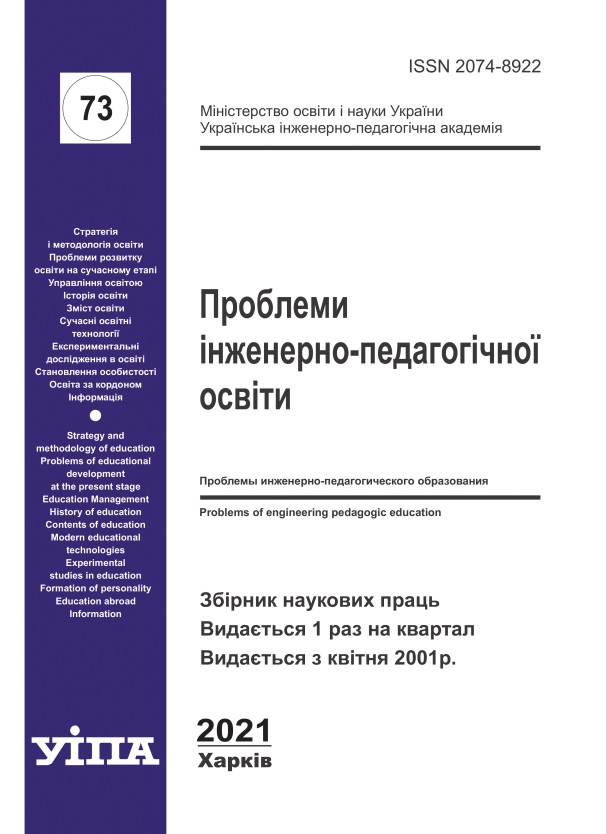Abstract
The article is devoted to the issues of monitoring the results of students' learning activities to
determine the degree of learning objectives achievement and the level of foreign language and speech
competence in the process of foreign language training in a technical higher education institution. It is noted
that the development of the system of objective control is one of the important directions of foreign language
teaching in technical universities, as it allows controlling knowledge and training efficiency objectively, and
the control is an integral element of any activity, including foreign language teaching.
The article deals with the system of monitoring in foreign language classes, allowing the teachers to
stimulate learning activity, ensure the systematization of the previously learned materials, develop students'
self-analysis and systematic work, and prevent the development of incorrect skills; the advantages and
disadvantages of testing foreign language knowledge of students are highlighted. The author defines the criteria
to be followed in compiling tests. The article pays special attention to electronic testing, playing a significant
role in the process of organizing control in foreign language classes at technical universities; its key
characteristics include validity, reliability, representativeness and discriminating ability; the criteria of
designing, types and forms of monitoring on the example of the Department of Foreign Language Training,
European Integration and International Cooperation (UEPA) and the advantages of testing on the Moodle
platform are highlighted. The author emphasizes that electronic testing should not completely replace
traditional forms of control. A reasonable combination of traditional and computer-based control is necessary to
obtain a stable result of knowledge assessment in the process of foreign language teaching. Computer-based
tests on a certain topic (Entry Test, Diagnostic/Progress Test, Achievement Test), as well as the final test at the
end of a semester and academic year, can serve as an excellent supplement to such traditional forms of control
as oral questioning during practical classes, written control translation, essays, colloquiums, and oral exams.
The article concludes that, in the process of organizing a foreign language course at a higher technical
education institution, the improvement of the system of foreign language teaching is directly related to
improving the system of control. ICT applications for assessing students' knowledge and skills can
significantly improve the efficiency of the work in this direction.

This work is licensed under a Creative Commons Attribution-NonCommercial-NoDerivatives 4.0 International License.
Copyright (c) 2023 Problems of Engineer-Pedagogical Education


